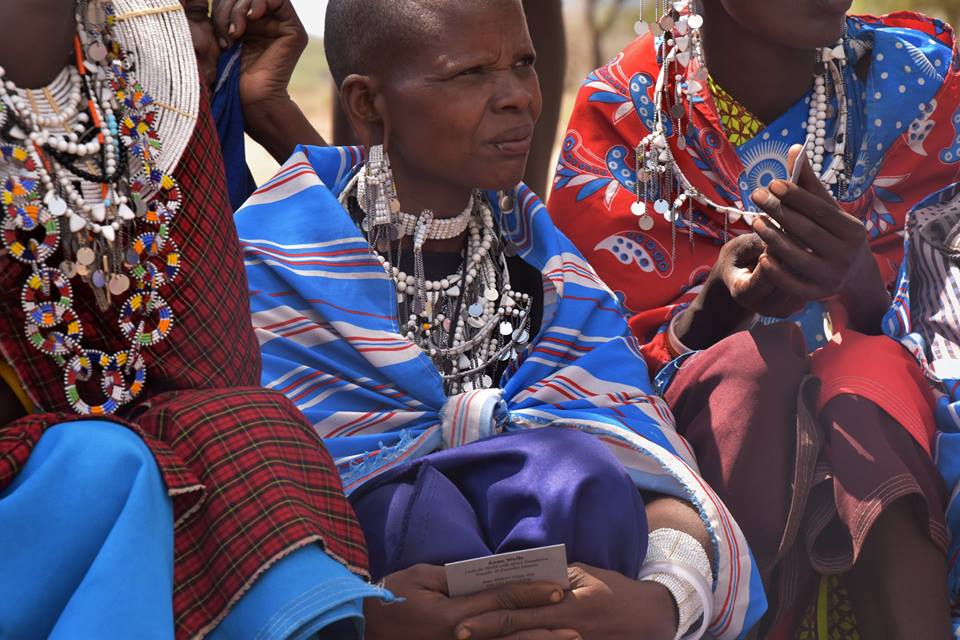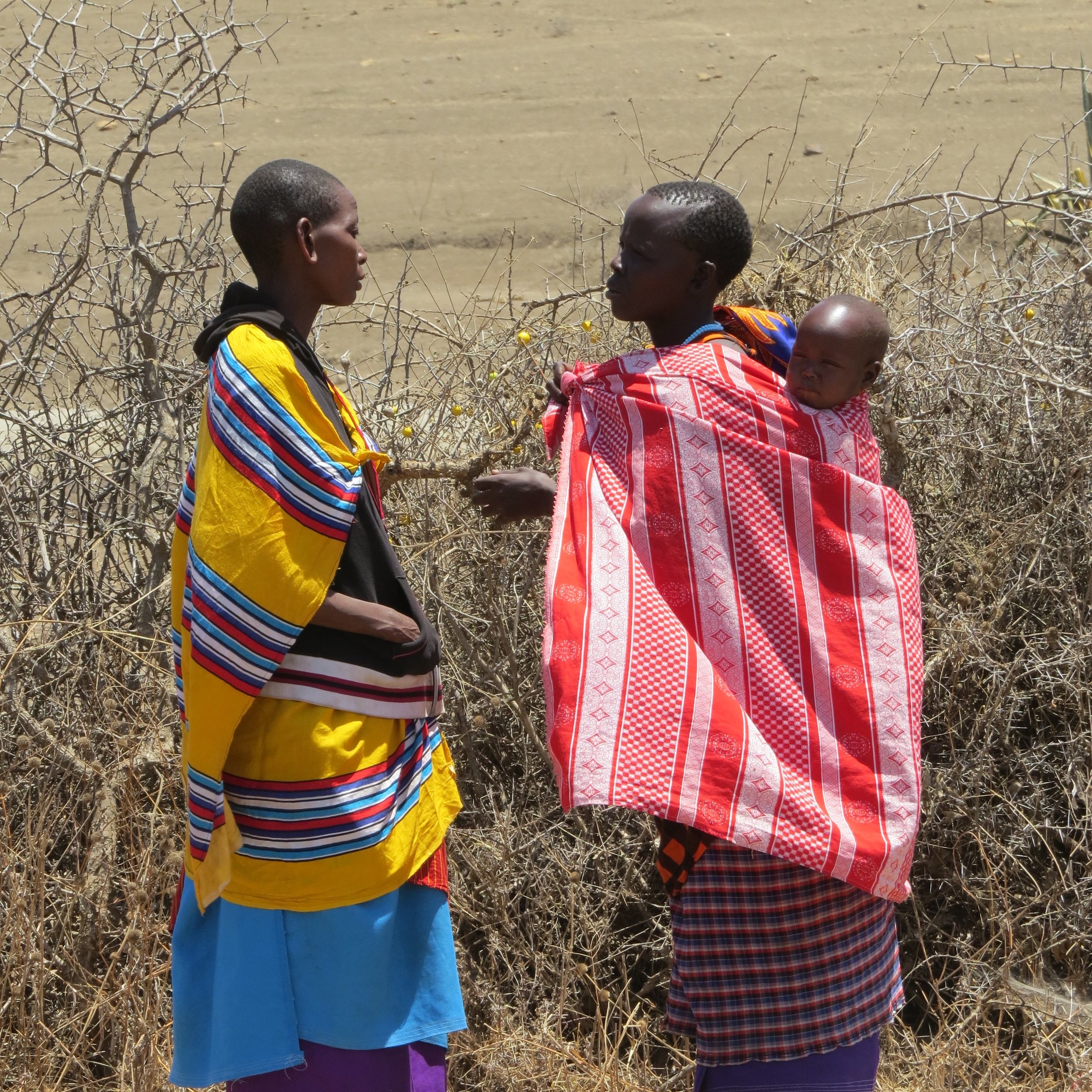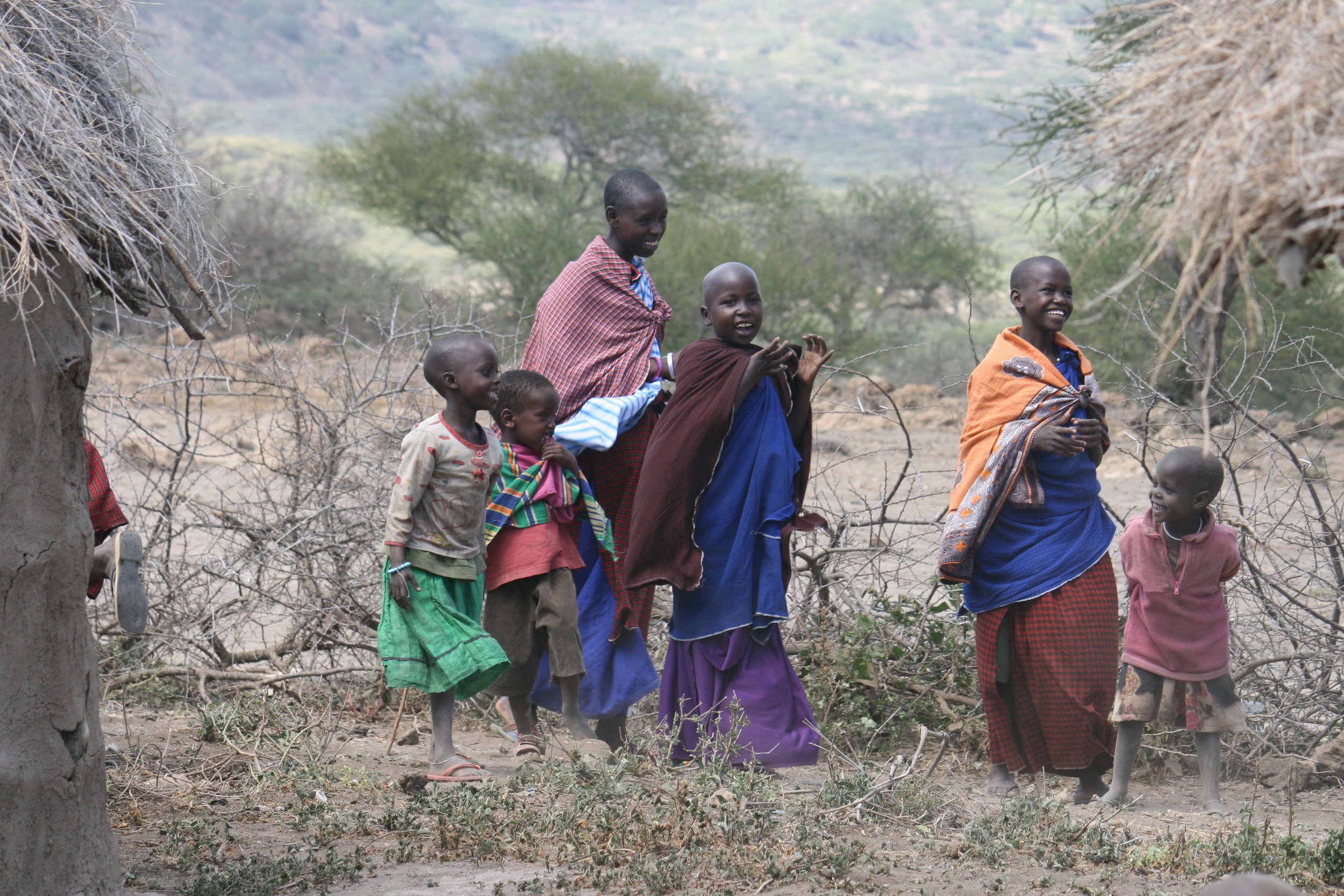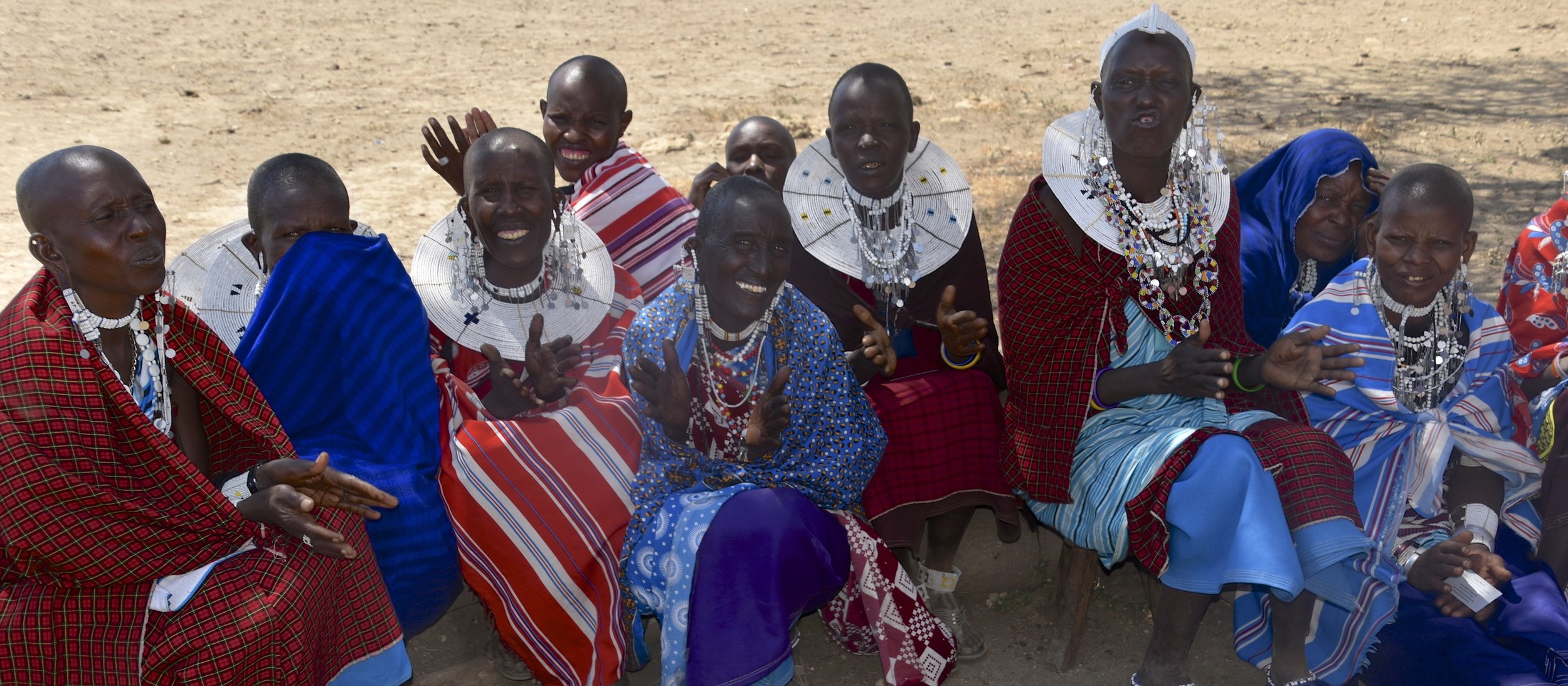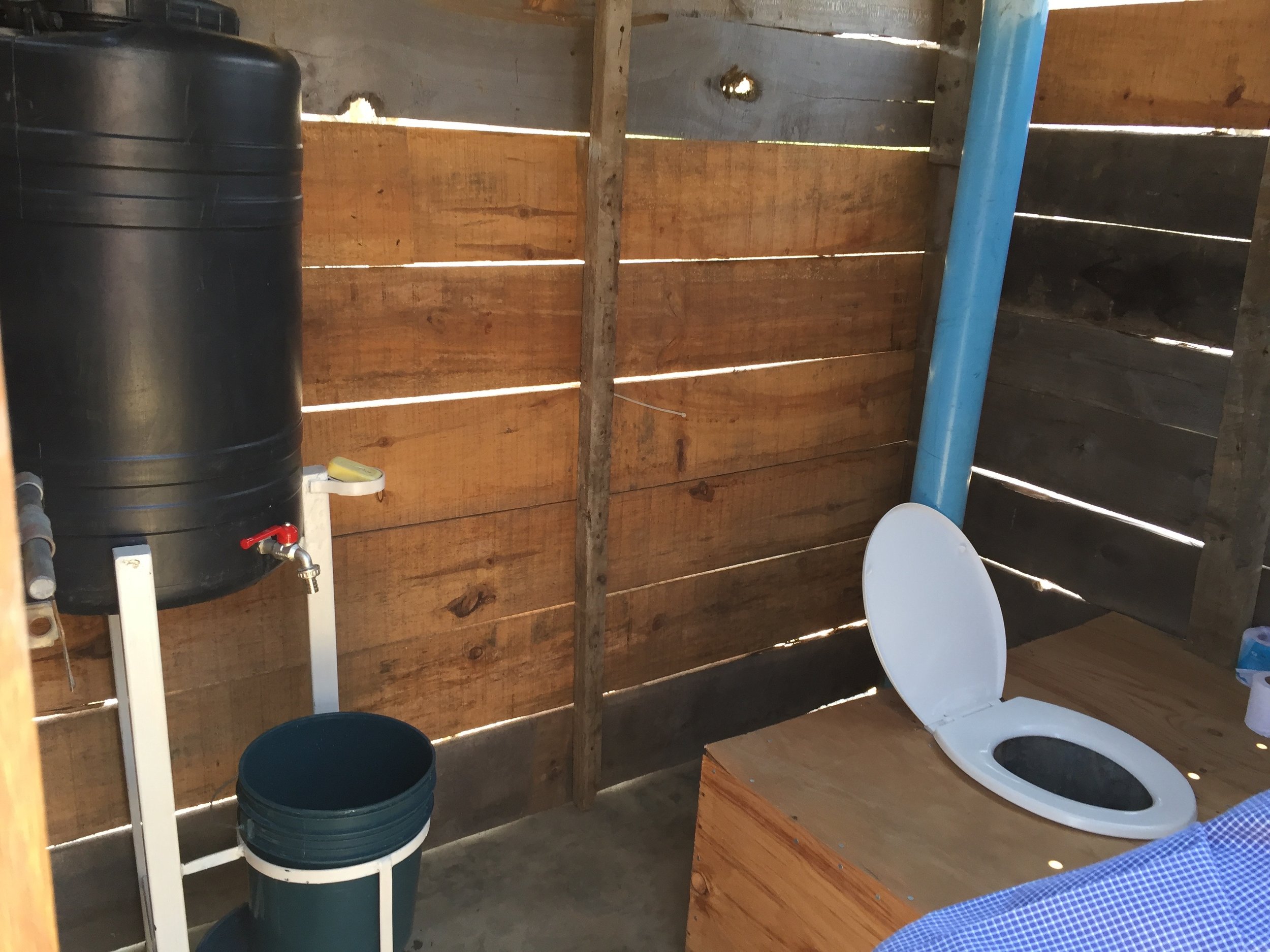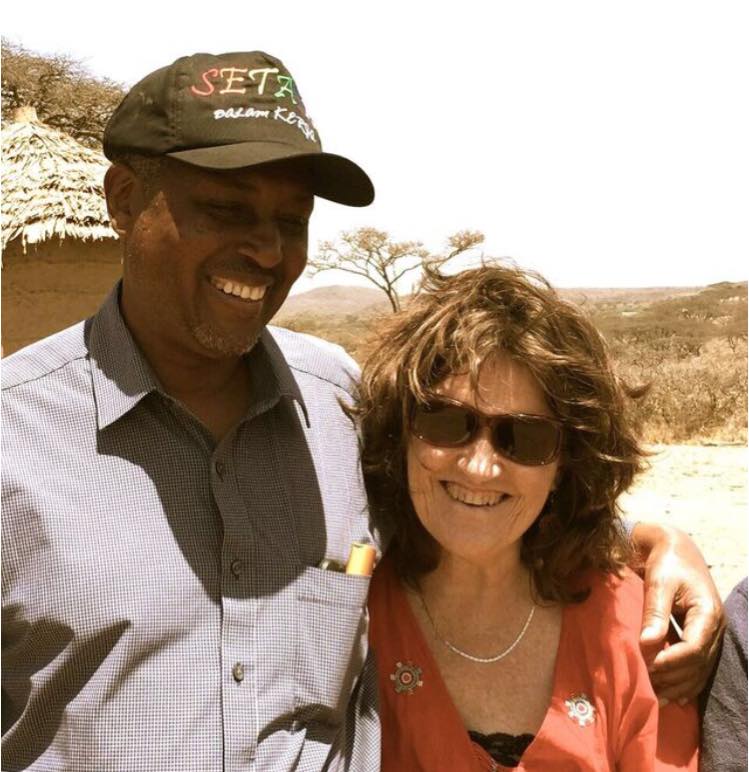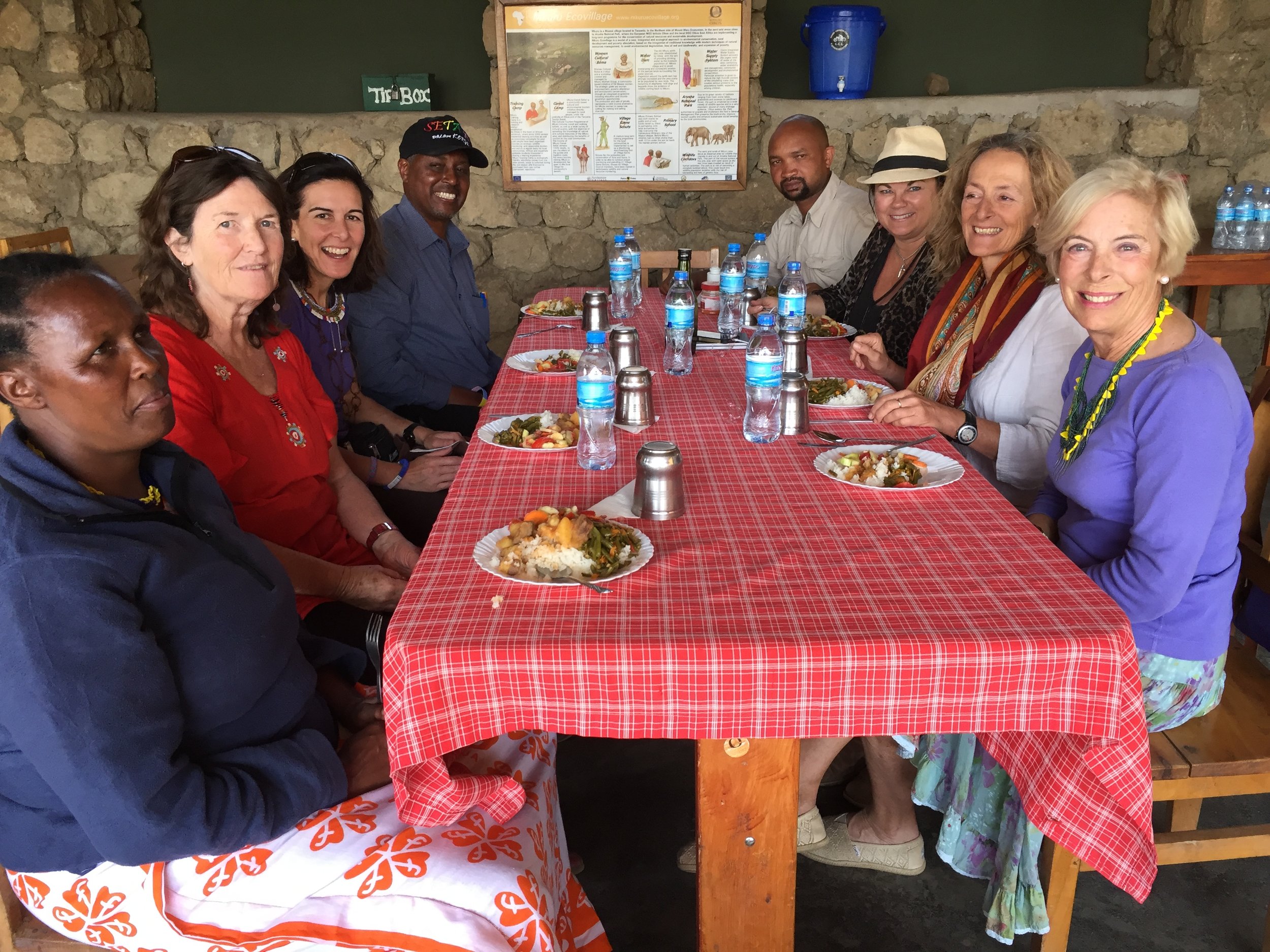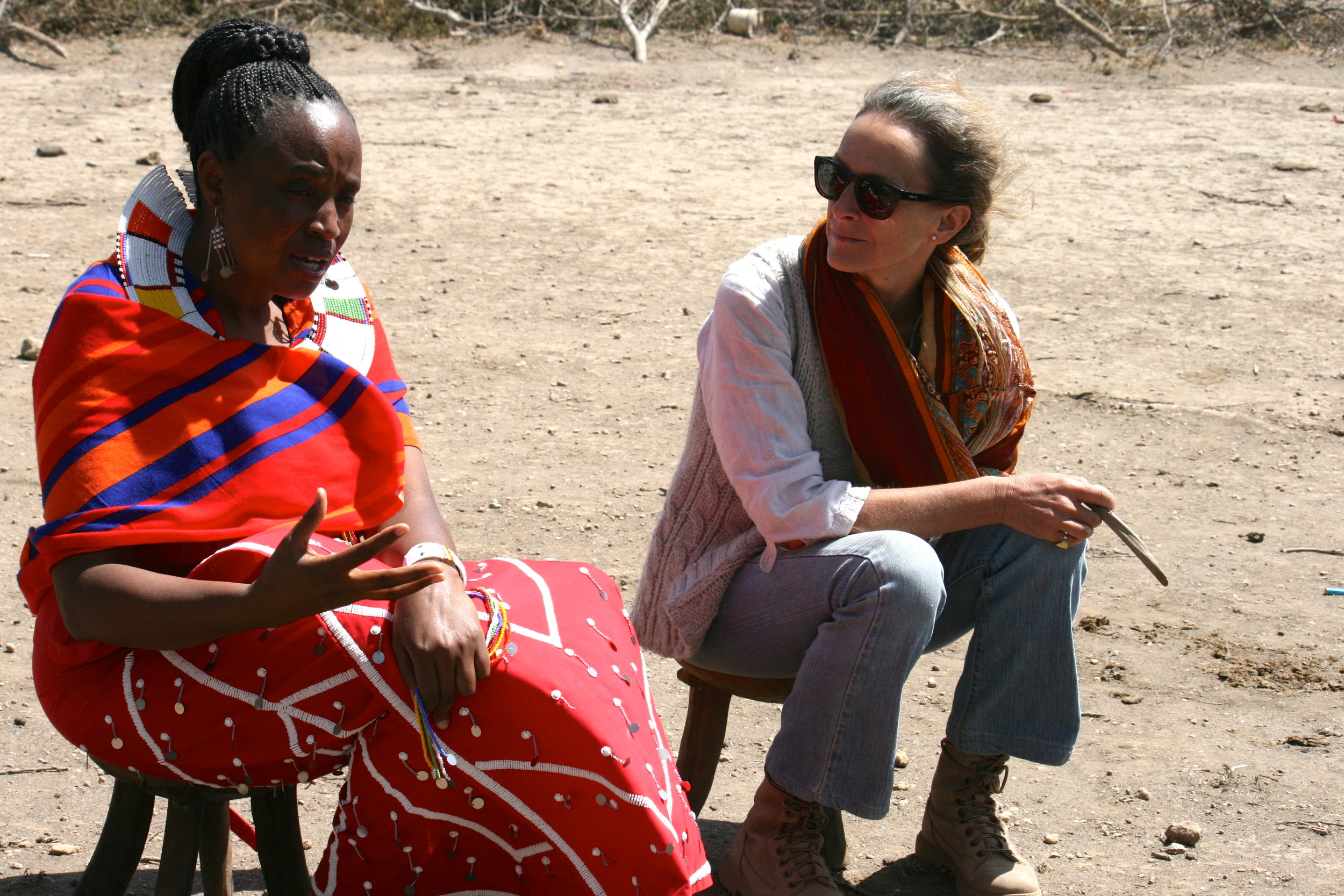Dr. Gideon with two Maasai women who recently had surgeries sponsored by Unite. Namayani had cataract surgery and can now see well. She wears dark glasses for dust and sun protection. Mariam had surgery to remove a goiter. She will need a follow up surgery but is feeling strong and well.
In partnership with Dr. Gideon Urion, Annie Francis and Tati Oliver (founder & director of Tanzania Maasai Women Art - TMWA), Unite completed a third-year Health, Education & Screening program to better serve the Maasai women, children and community of Mkuru, Tanzania.
The Maasai are a polygamist, semi pastoralist tribe in which traditionally women perform heavy, grinding manual labor and have little to no access to healthcare. Girls and boys are both circumcised in their youth, and those operations—which for the girls are carried out inside bomas (mud huts, see below)—are performed with rudimentary, unsterile equipment, which can cause painful, life-long complications. This pioneering iniative will help these marginalized women better understand the inner workings of their own bodies and how to better care for themselves, control their family planning and support the health of their newborns and growing children.
Many of the women with whom we are working are also employed as the artists of TMWA. We started in 2015 with 30 women and now are reaching hundreds within the community, including women (of all generations), traditional birth assistants, and the men -- who now are coming forward for education as well.
The program includes regular health screenings and referrals to local health centers as necessary, trainings for the midwives, and relevant health education programs, which cover such topics as family planning, nutrition, hygiene and sanitation, First Aid, HIV/AIDS and STDs, reproductive health, dental care, control of airborne and communicable disease, and more.
During the due diligence phase of the program, we learned about:
Common Ailments:
All year long they suffer from Malaria, back pain, headaches and congestion.
During the cold season, they also suffer most from chest pain, pneumonia and cough.
During the rainy season, they also suffer from fever, vomiting and diarrhea.
During the dry season they also suffer chest pain, eye problems, skin problems, joint pain, diarrhea and vomiting, some of which they attribute to having to use more refined cooking oil because the shortage of grass causes their cattle to produce less milk and gee.
How they treat illness:
When they are sick, they go to their traditional healers, who give them "dawa" (medicine) made from tree bark, leaves & roots. Only if the patient worsens after days or weeks will he or she be taken to a health clinic.
childbirth:
All of the women give birth at home with only the help of a traditional birth attendant. They will usually only visit a health facility once after delivery when the baby is about six months old, at which time the mother is able again to walk the long distances to and from the clinic.
In Maasai culture, a new mother will go without sexual intercourse for three years after her baby is born and during which time she is breastfeeding. They do not know about any other methods of birth control.
HIV/AIDS
None of them have any real understanding of HIV/AIDS. A few had heard the word on the radio but none believe that they know anyone with the disease and none could say what is was or how it is transmitted.
Nutrition
They eat one meal per day -- mostly porridge and makande (corn) and perhaps once a week they may have a vegetable such as cabbage, spinach and/or peppers.
Hygiene
Only four of the women and their families have access to a latrine. The rest go to the toilet in the bush or in their cow pen areas.
The women said the did not know any importance of cleanliness or hygiene beyond not smelling.

